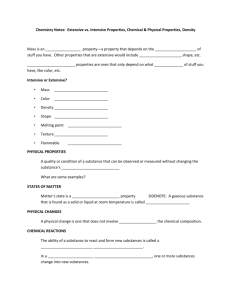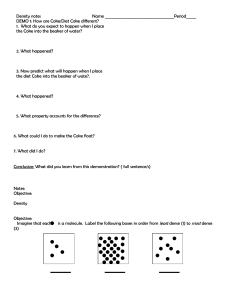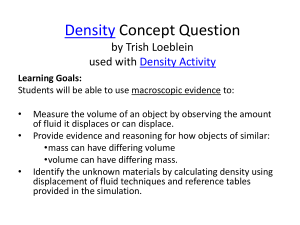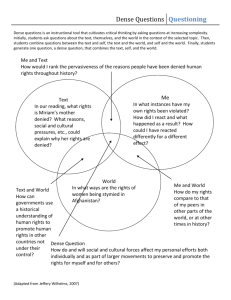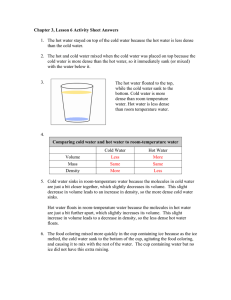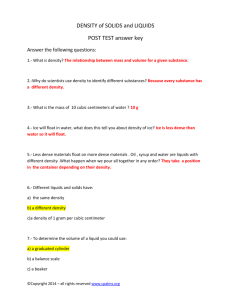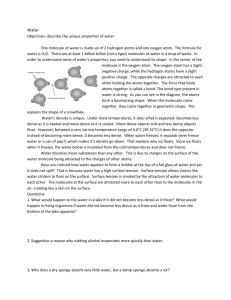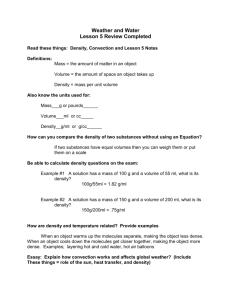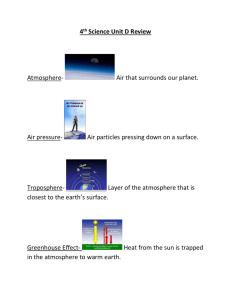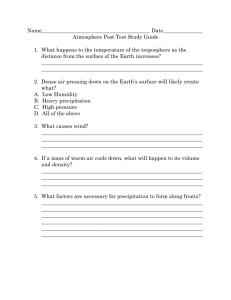4.10 Density
advertisement
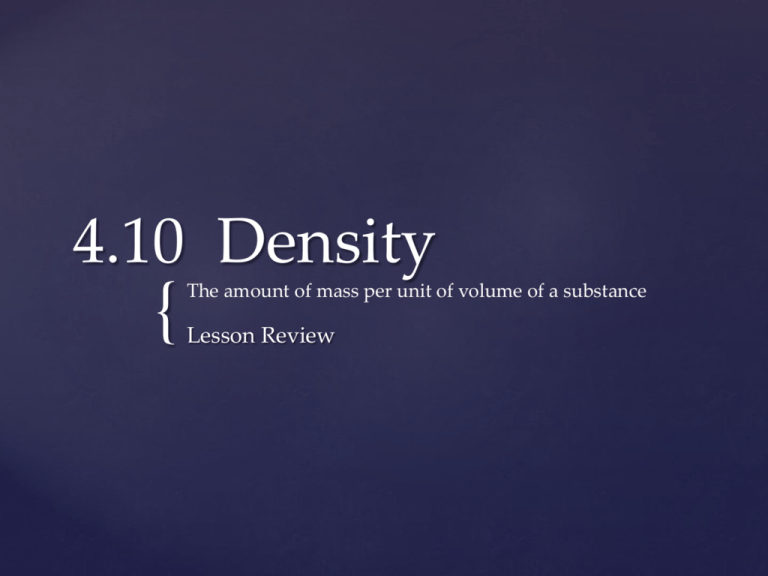
4.10 Density
{
The amount of mass per unit of volume of a substance
Lesson Review
How do we find Density?
Density = Mass / Volume
Example: 16 oz of water with a volume of 8 mL = 16/8 = 2 oz/mL
Density is an intensive property, meaning it will not change if you change
the mass of the object.
Example: 16 oz of water with a volume of 8 mL = 16/8 = 2 oz/mL
32 oz of water with a volume of 16 mL = 32/16 = 2 oz/mL
So the density of 16 oz of water is the same as 32 oz of water because the
substance is the exact same. That means an Ice cube has the same density as
an Iceberg!
The Density of a substance will remain the same as long as the substance
remains exactly the same, including the phase/state of the substance.
Example 2:
Substance 1
Substance 2
If you look at substance 1, you can agree it
has more red dots than substance 2.
If those red dots are atoms, you can agree
substance 1 has more atoms than substance 2.
Therefore, we can say that substance 1 is more dense than substance 2, because
it has more atoms per square unit.
In this example, Substance 1 is 16 oz of water and Substance 2 is 16 oz of Ice.
Water is more dense than Ice because it has more atoms per square.
When water freezes it expands, therefore changing the volume without
changing the mass.
Substance 1: Mass = 16 oz, Volume = 8 mL Density = 16/8 = 2 oz/mL
Substance 2: Mass = 16 oz, Volume = 16mL Density = 16/16 = 1oz/mL
More examples:
Substance 1
Density
Substance 2
Water
Water is more dense
Ice
Ice cube
Same density
Iceberg
Diet coke
Diet coke is less dense than coke
Regular coke
1 cup of pudding
Same density
Swimming pool
of pudding
Conclusion:
Density is an intensive physical property and does not change if you
increase or decrease the amount of the substance you have.
Density of a substance will change if you change or alter the substance
in any way (Ex changing phase/state or the substance all together)
Practice:
Find the density of the following:
1. This substance has a mass of 20 g and a volume of 5 mL.
2. Mercury metal is poured into a graduated cylinder that holds exactly
22.5 mL. The mercury used to fill the cylinder weighs 306.0 g.
1. A block of aluminum occupies a volume of 15.0 mL and weighs 40.5 g.
Now put the above 3 substances in order from least dense to most dense
based on your answers.
Answers:
Find the density of the following:
1. Density = 4 g/mL
2. Density = 13.6
3. Density = 2.7 g/mL
Now put the above 3 substances in order from least dense to most
dense based on your answers.
1. Density = 2.7 g/mL
2. Density = 4 g/mL
3. Density = 13.6
